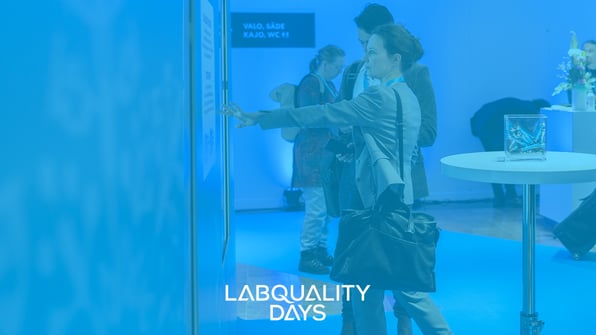How to set analytical performance specifications in laboratory medicine?

Abstract: Performance Specifications with Special Emphasis on Biological Variation Data
How to set analytical performance specifications was discussed on the 1th Straategic conference of EFLM in Milan 2014. Four models were recommended: Model 1: Based on the effect of analytical performance on clinical outcomes. Model 2. Based on components of biological variation of the measurand and Model 3. Based on state-of-the-art. It is recommended that a list be made allocating measurands to different models. Prefer- ence should be given to models 1 and 2. In some situations, it can be advantageous to combine the different models (1).
One of the Task and Finish Groups (TFGs) after the 1th EFLM Strategic conference in 2014 was the TFG of the biological variation database. This TFG should a) develop a critical appraisal check list to evaluate literature on biological variation, to evaluate the literature on biological variation and extract essential information from the papers as well as summarise the information. It should generate a database on the EFLM website with essential information about the biological variation and derived performance specifications for different measurands as well as the evidence behind. The TFG consisted of people interested in the work and was a cooperation between the TFG, the Analytical Quality Commission of the Spanish Society of Clinical Chemistry, the WG of biological variation in EFLM and interested individuals, altogether more than 30 persons. Different groups are established for different measurands. The groups have categorised papers as A, B, C and D depending on their methodological quality, with category A papers indicating high-quality and D poor quality using a checklist that contains 14 items. From each paper 22 items are extracted and presented in the database (2). The lecture will give a status of the present work.
In addition, the WG on biological variation has collected data from about 100 healthy persons in 6 different European countries and is now generating new biological variation data for a lot of measurands. The results from this study will be compared with data after the literature search.
After the Milan conference, four other TFGs were established: TFG 1: To allocate different tests to different models for estimating performance specifications and to give an overview and a reason for why tests are allocated to the different models (3); TFG 2: To define performance specifications for the most common measurands that should be used by EQAS organizers (4); TFG 3: To come up with a proposal for how to use the total error concept and how to possible combine performance specifications for bias and imprecision(5); TFG 4: To come up with a general proposal on how to generate performance specifications for the pre- and post-analytical phases (6). Some of the results from these TFGs will be presented in the lecture.
Welcome to Helsinki and International Congress on Quality in Laboratory Medicine 8-9 February, 2018 to learn more. Dr. Sandberg will give his presentation on Thursday 8 February, 2018. www.labqualitydays.com
 Sverre Sandberg
Sverre Sandberg
Norwegian Quality Improvement of Laboratory Examinations (Noklus), Bergen, Norway
Sverre Sandberg is a MD, PhD and specialist in laboratory medicine. He is director of NOKLUS, a Norwegian organisation for quality improvement of primary care laboratories (www.noklus.no) which serves about 3000 users of POC equipement outside hospitals (GP offices, nursing homes, oil platforms etc) and chair of SKUP, Scandinavian Evaluation of Laboratory Equipment for Primary Health Care (ww.skup.nu). He is director of the Norwegian Porphyria Centre (NAPOS) (www.napos.no). He is professor at the University of Bergen. From 2002 – 2012 he was director of Laboratory of Clinical Biochemistry at Haukeland University Hospital in Bergen.
He was from 1996 – 2002 chair of the Committee on Evidence-Based Laboratory Medicine and from 2002 – 2008 chair of The Global Campaign of Diabetes Mellitus in IFCC (International Federation of Clinical chemistry and Laboratory Medicine). Since 2000 he has been a board member of EPNET (European Porphyria Network), a partly EU-funded project. From 2012-14 he was president of the European Organization for External Quality Assurance in Laboratory Medicine (EQALM). In 2009 – 2014 he was chair of the Scientific Committee in EFLM (European Federation of Clinical Chemistry and Laboratory Medicine). From 2014-15 he was vice president and from 2016 president of EFLM. He is chair or member of different working groups in EFLM and IFCC.
He has published about 240 peer reviewed papers, supervised numerous PhD students and regular given international lectures in his fields of interests: evidence based laboratory medicine, quality improvement of point of care instruments, biological variation, performance specifications in laboratory medicine, quality assurance of the total testing process, laboratory aspects of diabetes, porphyria and photobiology. He has also been active in some other non-laboratory areas.
1. Sandberg, S., Fraser, C. G., Horvath, A. R., Jansen, R., Jones, G., Oosterhuis, W., et al. (2015). Defining analytical performance specifications: Consensus Statement from the 1st Strategic Conference of the European Federation of Clinical Chemistry and Laboratory Medicine. Clinical Chemistry and Laboratory Medicine : CCLM / FESCC, 53(6), 833–835. http://doi.org/10.1515/cclm-2015-0067
2. Aarsand, A. K., Roraas, T., Fernandez-Calle, P., Ricos, C., Díaz-Garzón, J., Jonker, N., et al. (2017). The Biological Variation Data Critical Appraisal Checklist: A Standard for Evaluating Studies on Biological Variation. Clinical Chemistry, clinchem.2017.281808. http://doi.org/10.1373/clinchem.2017.281808
3. Ceriotti, F., Fernandez-Calle, P., Klee, G. G., Nordin, G., Sandberg, S., Streichert, T., et al. (2017). Criteria for assigning laboratory measurands to models for analytical performance specifications defined in the 1st EFLM Strategic Conference. Clinical Chemistry and Laboratory Medicine, 55(2), 189–194. http://doi.org/10.1515/cclm-2016-0091
4. Jones, G. R. D., Albarede, S., Kesseler, D., Mackenzie, F., Mammen, J., Pedersen, M., et al. (2017). Analytical performance specifications for external quality assessment – definitions and descriptions. Clinical Chemistry and Laboratory Medicine, 55(7), 949–955. http://doi.org/10.1515/cclm-2017-0151
5. Oosterhuis, W. P., Bayat, H., Armbruster, D., Coskun, A., Freeman, K. P., Kallner, A., et al. (2017). The use of error and uncertainty methods in the medical laboratory. Clinical Chemistry and Laboratory Medicine. http://doi.org/10.1515/cclm-2017-0341
6. Plebani, M., & phases, E. T. F. O. P. S. F. T. E.-A. (2017). Clinical Biochemistry. Clinical Biochemistry, 50(10-11), 550–554. http://doi.org/10.1016/j.clinbiochem.2017.02.002
7. Panteghini, M., Ceriotti, F., Jones, G., Oosterhuis, W., Plebani, M., Sandberg, S., Task Force on Performance Specifications in Laboratory Medicine of the European Federation of Clinical Chemistry and Laboratory Medicine (EFLM). (2017). Strategies to define performance specifications in laboratory medicine: 3 years on from the Milan Strategic Conference. Clinical Chemistry and Laboratory Medicine, 55(12), 1849–1856. http://doi.org/10.1515/cclm-2017-0772
International Congress on Quality in Laboratory Medicine 8-9 February, 2018 Helsinki, Finland
Register now and ensure your participation to the most interesting congress in medical laboratory field in 2018. Scientific program deals with quality issues of laboratory medicine and advanced healthcare technologies. Two inspiring days with world class speakers will guarantee an unforgettable experience. Read more on www.labqualitydays.com


